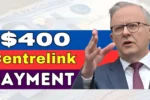2025 is seeing thousands of Australians missing out on the $260 Medicare cash relief payment that should have been given to them. The government created this program to relieve medical expenses, particularly for those with low incomes.
The majority of the eligible recipients are either unaware of the program or have not undertaken the necessary steps to claim their money. This unclaimed relief represents an ongoing issue concerning awareness and accessibility of public health supports.
What is the Purpose of the $260 Medicare Cash Relief?
The $260 Medicare payment has been designed as a one-off support for Australians to help cover some of their out-of-pocket expenses for medical costs. It includes the entire gamut of health care and covers GP visits, diagnostic services, and all kinds of standard treatments. Rising healthcare costs push this relief onto the shoulders of vulnerable populations, ensuring they are financially capable of accessing essential medical care.
Criteria for Eligibility and Difficulties to Claim
A person may qualify if she holds a valid Medicare card and satisfies income or other concession criteria; usual receivers of government benefits such as JobSeeker, Disability Support Pension, or Age Pension are pre-qualified.
However, unlike most payments that are generally applied directly to Centrelink accounts, this aid requires the applicant to actively check the Medicare online portal or visit a service centre to make a claim. The unnecessary requirements of going through this extra step have kept claims rates low, especially among older Australians or those in poverty who already have limited access to technology.
Why Most of the Relief Remains Unclaimed
One of the factors that contribute to high numbers of non-claimed payments is direct communication not having been established. Most eligible Australians were not sent personal notification messages from Medicare or Services Australia and hence hitherto have not thought themselves entitled to such programs.
Also, confusion surrounding how to access MyGov and link Medicare accounts or update bank details discourages claims. Barriers to language, a technological divide, and lack of media presence have also served to keep uptake low.
Economic and Health Implications of the Oversight
The withholding of funds does not only mean a missed financial opportunity: broader implications exist on the economic and public health fronts. People delay needed medical attention out of the perception of high cost increase in health problems down the line, eventually more expensive to tend.
For the government, unobserved benefits are not merely a lapse on the governmental outreach but more-so on closing on healthcare equity. Closing this gap would ease hospital strain and improve health outcomes in the long run while rewarding public-system trust.
What the Government Is Doing About the Problem
Amidst growing concern about the unclaimed $260 payments, the Department of Health launched a public awareness campaign first. Measures include the establishment of channels to channel people through community centres, promotes multi-lingual information campaigns, and operates a simplified approach to online services. Some parties have intently pushed for automatic payments for all eligible citizens once they have registered with Centrelink or the Australian Taxation Office in an attempt to wipe away the red tape.
Conclusion: A Small Payment with Big Potential Impact.
The \$260 Medicare Cash Relief might seem very little, but it could be the difference for many Australians in terms of receiving medical treatment on time or delaying treatment. Now that most of these payments are still unclaimed, it is high time for all eligible persons to come forward while the authorities work on improving awareness. Helping to ensure that the payment reaches those most needing it will lessen not only the burden of certain individuals but also help strengthen Australia’s existing effort of promoting affordable, universal health care.



